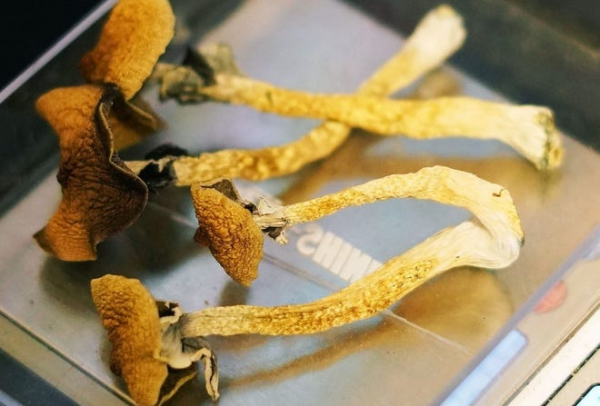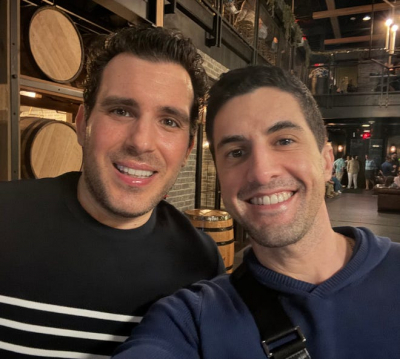

Ketamine Bros: Undermining the Promise of Psychedelics for Therapeutic Use
In my journey as a shaman, I once encountered a woman on the brink of a painful demise from bone cancer. Struggling with agony and unable to rest, she found solace in the depths of a psilocybin-induced journey. Over the course of five profound hours, she unearthed acceptance for her impending passing and discovered profound meaning in her existence. Miraculously, her physical torment evaporated, leaving her to spend her final days in tranquility. Witnessing this transformation firsthand, her husband echoed newfound belief in the mystical. Yet, years later, at a gathering in Miami, I found myself seated beside a woman whose laughter rang hollow, her thoughts disjointed under the influence of ketamine. Such encounters epitomize the paradox of psychedelics in our era.
I've borne witness to the remarkable therapeutic potential of psychedelics, guiding countless souls—cancer patients, PTSD-afflicted veterans, and individuals grappling with depression—through journeys of healing and self-discovery. Yet, amidst the promise of these substances lies a growing concern: the rise of a ketamine-centric culture, threatening to overshadow the strides made in psychedelic research. As a trained shaman, my path to understanding led me through diverse spiritual traditions until I found resonance within the Santo Daime lineage, steeped in the ritual use of ayahuasca. Through disciplined practice and under the guidance of revered mentors, I've seen how psychedelics, when administered in a controlled, therapeutic environment, can catalyze profound transformations.
Despite their potential, the current landscape is marred by misuse and trivialization, diluting the profound impact psychedelics can offer. As the momentum of scientific inquiry converges with age-old wisdom, it's imperative to safeguard the integrity of these substances and honor their capacity to facilitate healing and transcendence.
The therapeutic potential of psychedelics, exemplified by substances like psilocybin and ketamine, is at the forefront of modern medical exploration. Psilocybin, with its profound impact on conditions like depression and anxiety, has shown remarkable promise, as evidenced by a 2016 study showcasing its ability to alleviate symptoms among cancer patients. Similarly, ketamine, once solely utilized as a short-term anesthetic, has emerged as a powerful tool in combating depression, as indicated by a 2019 study highlighting its rapid efficacy.
These advancements have ignited a wave of research into psychedelics' potential to address a spectrum of disorders, from PTSD to anorexia and alcoholism. Yet, alongside this progress looms a precarious reality: the burgeoning trend of psychedelics as recreational indulgences, particularly within Silicon Valley's elite circles, poses a significant threat. The rise of a "ketamine bro culture" not only diminishes the therapeutic significance of these substances but also risks triggering a societal backlash that could stifle further medical exploration.
The allure of psychedelics lies in their capacity to unlock deeper states of consciousness, facilitating accelerated trauma healing and promoting neuroplasticity. However, rewiring the brain demands a delicate approach, necessitating controlled environments and expert guidance. The casual embrace of psychedelics by figures like Elon Musk, celebrated for their purported ability to disrupt habitual thinking, sends a troubling message. While touted as non-addictive catalysts for innovation, their misuse without professional oversight undermines their true potential and endangers the legitimacy of ongoing research.
As the medical community stands on the brink of transformative breakthroughs, it is imperative to safeguard the integrity of psychedelic research and ensure their responsible integration into therapeutic practices. Only by approaching these substances with reverence, humility, and respect for their complexity can we unlock their full capacity to heal and transform lives.
The allure of altered mental states through psychedelics is undeniable, but their reckless use can lead to dire consequences, as evidenced by the tragedies unfolding in Silicon Valley. The struggles of prominent figures like Tony Hsieh and Bob Lee, grappling with ketamine addiction before their untimely deaths, serve as stark reminders of the dangers lurking amidst psychedelic experimentation. Pete Davidson's descent into rehab after years of daily ketamine use and the tragic passing of Matthew Perry further underscore the perils of unchecked substance abuse.
While reliable data on psychedelic misuse remains elusive, the alarming spike in hallucinogen-related emergency room visits in California paints a troubling picture of escalating harm. Ketamine's surge in popularity raises particular concerns, echoing the cautionary tale of MDMA's swift descent from therapeutic acclaim to recreational infamy.
The history of MDMA's vilification offers a sobering lesson: once hailed for its therapeutic potential, it was swiftly engulfed by rave culture, prompting a swift government crackdown. However, amidst the risks lie promising prospects, with MDMA now under FDA review for treating PTSD.
Acknowledging the hazards of psychedelic abuse is crucial, yet we must resist reducing them solely to public health threats. Embracing responsible usage demands societal accountability, particularly from those in positions of influence. Trivializing psychedelics' effects only serves to perpetuate misconceptions and encourage their misuse outside therapeutic settings.
As we navigate this delicate balance between caution and potential, fostering a culture of mindfulness and respect for psychedelics is paramount. Only by honoring their complexity and therapeutic potential can we harness their transformative power while safeguarding against harm.
In the realm of news media, maintaining a balanced narrative is paramount. While addressing instances of misuse is important, journalists must resist fixating solely on the negative, ensuring that the therapeutic potential of psychedelics receives equal attention. Failing to provide this nuanced perspective perpetuates harmful misconceptions that undermine progress.
Fortunately, strides have been made in dispelling the stigma surrounding psychedelics, thanks to ongoing research highlighting their transformative impact on behavioral health therapy. With each new study, hope burgeons for countless individuals grappling with profound physical, mental, and spiritual anguish.
It's imperative that the actions of a small subset of irresponsible users don't overshadow the profound benefits that psychedelics offer. As a family office portfolio manager and practicing shaman, I've witnessed firsthand the profound transformations facilitated by psychedelics in legal and therapeutic contexts. Through my work with Beckley Retreats, I strive to provide safe and supportive environments for clients seeking healing in jurisdictions where psilocybin is legal. Let's ensure that the narrative surrounding psychedelics reflects their potential to bring relief and renewal to those in need.
In conclusion, as we navigate the evolving landscape of psychedelic research and cultural perception, it is imperative that we maintain a balanced perspective in our discourse. While acknowledging the risks associated with misuse, we must not lose sight of the immense therapeutic potential that psychedelics hold. By fostering a nuanced understanding and responsible dialogue, we can ensure that those in need have access to the healing they deserve, without undue stigma or hindrance. As we continue on this journey, let us remain committed to advancing the conversation surrounding psychedelics with empathy, integrity, and a steadfast dedication to improving mental health outcomes for all.








